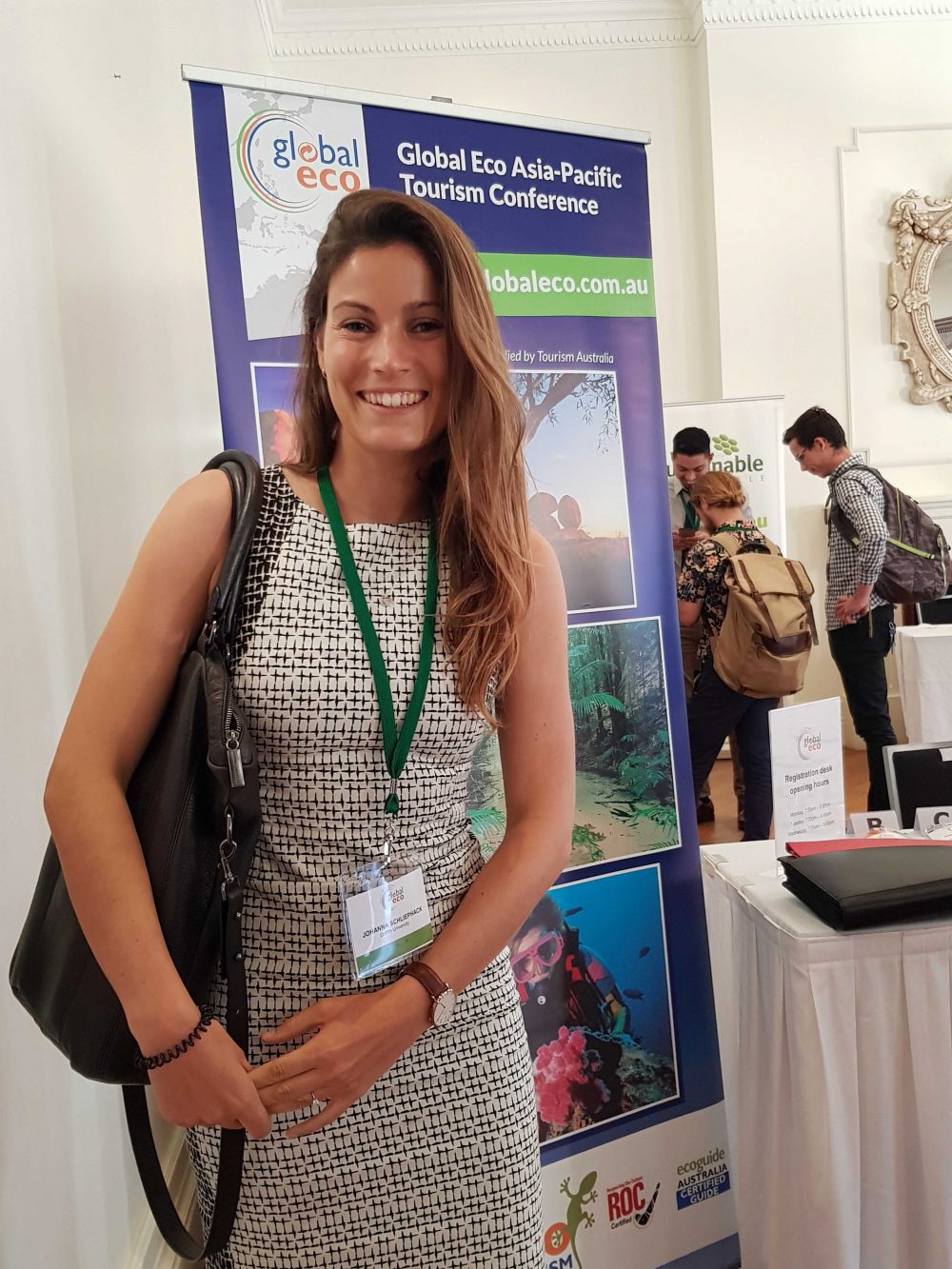Impressions from the Global Eco Conference 2018 in Townsville
By Johanna Schliephack
I was lucky to attend the Global Eco Conference in Townsville last week which brought together a great line up of speakers from industry, government, and academia. Many presentations focused on the tourism conservation nexus and the Great Barrier Reef. In ecotourism, or sustainable tourism, the focus lies on using tourism as a means of generating benefits to its socio-cultural and natural surroundings.
I am undertaking a PhD in tourism and climate change, adopting a holistic systems approach to better understand how the different elements that make up a destination interact, and how in turn, that influences resilience and climate change risk reduction in the South Pacific. I’m interested in what benefits tourism can deliver, particularly around reducing climate change risk, but also in delivering well-being more broadly.
Many great examples where presented about how tourism can deliver benefits to communities and the natural environment: Tjapukai Aboriginal Cultural Park and Mungalla Aboriginal Business Corporation representatives showed how tourism can provide indigenous communities with employment and income to support community projects, conservation and education initiatives as well as raising visitor awareness. This ensures that cultural practices and knowledge is conserved and passed on, not just to visitors but to future generations.
Despite the focus on ecotourism, a surprising large number of presentations eventually came back to the benefits of tourism’s ability to generate income, jobs, development and prosperity; in other words: growth. This growth paradigm is reflected in the idea that more tourists are needed and that Australia’s stunning environment provides the perfect base to attract further visitors.
The latest climate change report released by the IPCC in September this year, indicates that a shift in thinking and urgent decarbonisation is needed to avoid global warming of more than 1.5°C, which would have severe impacts on our lives and the natural environment the tourism sector strives to protect. This of course applies to the Great Barrier Reef, which is already suffering from the impacts of a 1°C increase in warming today. Educating visitors to increase environmental consciousness and potentially even change behaviour is a goal many aim to achieve. The idea that visitors need to go and experience the Great Barrier Reef in person in order to understand its importance and to adopt a change in behaviour was supported by many. However, to what extent do the negative impacts of travel outweigh the positive change tourism can make?
Many places around the world are struggling with overtourism, a topic which was also discussed at the conference. While there is a natural carrying capacity or limit to which the natural environment can accommodate visitors in a sustainable manner, there is also a social carrying capacity. Susanne Becken suggested that this may be due to the fact that nature can’t vote, but people can; which leads to the question how many ecosystems have been degraded due to our desire to visit pristine places?
We, as aspiring future leaders in the field of sustainable tourism, have to ask ourselves which of our actions we believe to be important enough – such as flying to conferences – to outweigh the negative impacts, or as Laura Hahn from the Queensland National Park Association asked: “Are ecotourism best practices actually enough?” Examples such as Lady Elliot Island show that tourism can make a real difference if the right people set their minds and hearts to take risks and work hard. It seems that in order to be truly sustainable and create holistic benefits as a business comes down to what is valued more, and whether success is defined as growth or looking after our planet. In the future, we may not be able to achieve both.
